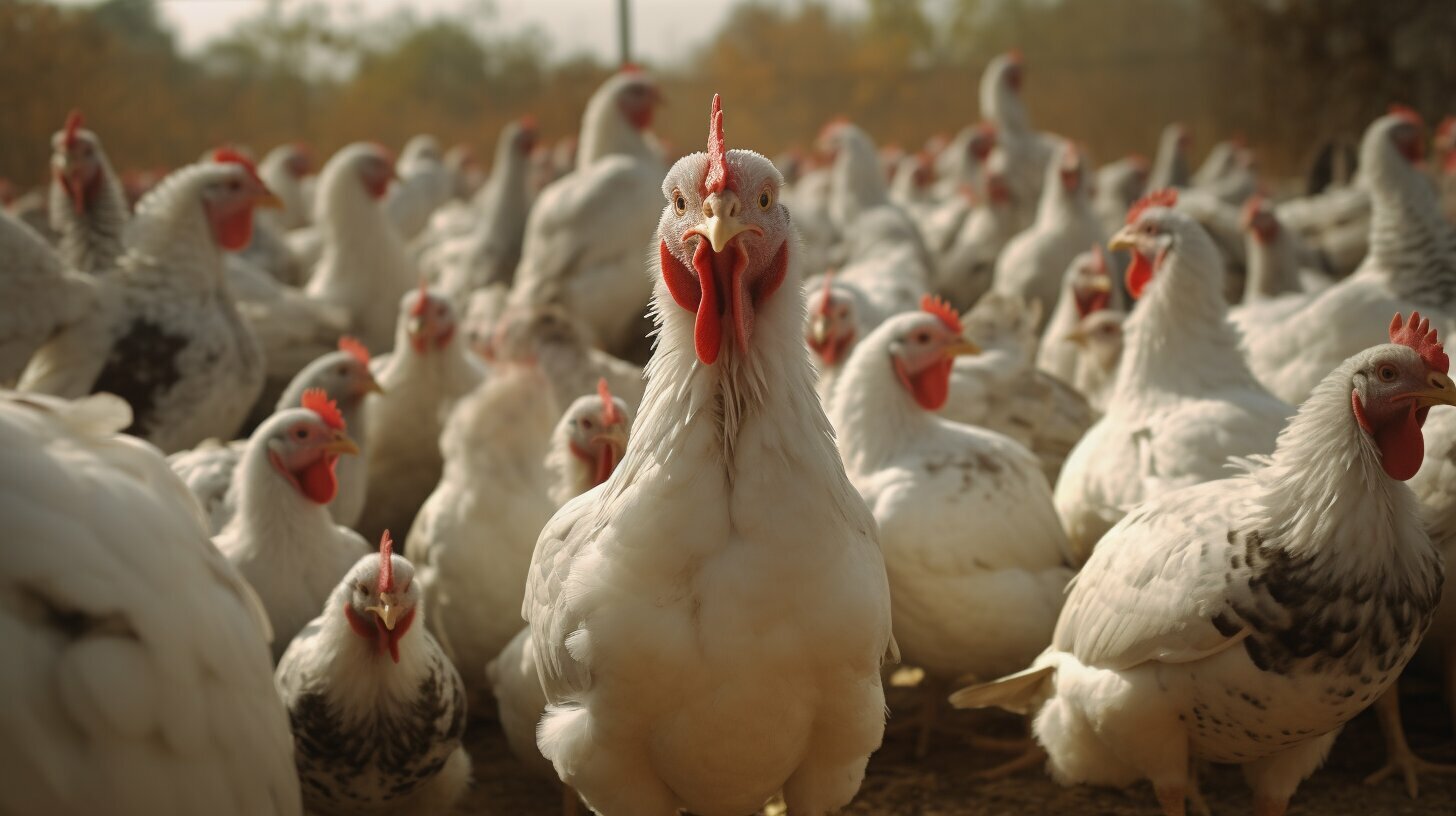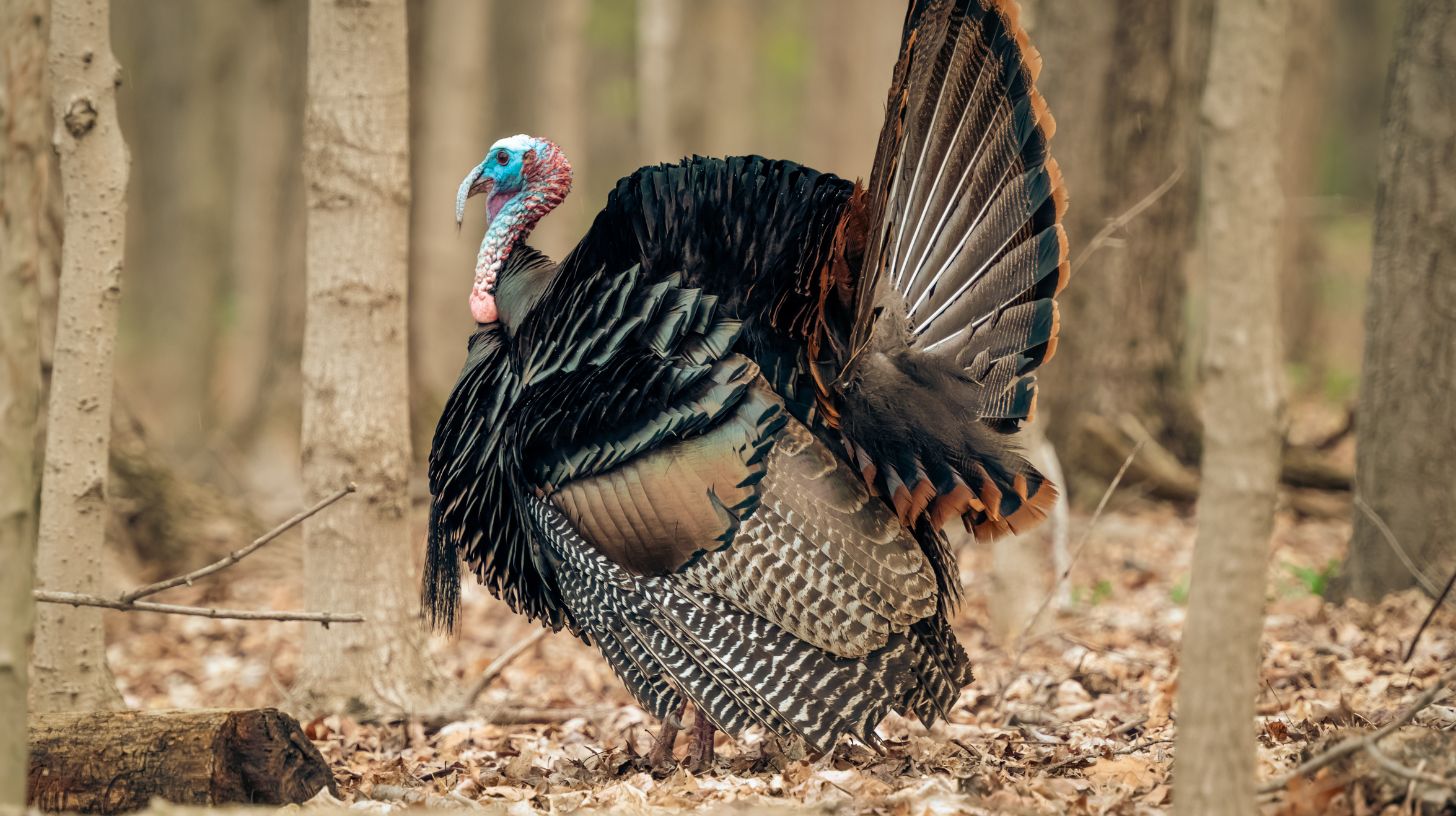Can Turkeys Eat Carrots? Healthy Snack Option for Flock

Table of content:
As a professional journalist with a passion for animal health, I am often asked about the suitability of various foods for different types of animals. One question that comes up frequently is whether turkeys can eat carrots. In this article, I will explore this question in depth, providing information on the potential benefits and drawbacks of feeding carrots to turkeys, as well as alternative healthy snack options.
Key Takeaways
- Turkeys can safely consume carrots as part of a balanced diet
- Carrots can provide a range of nutritional benefits, including fiber and vitamins
- It is important to introduce new foods gradually and monitor turkeys’ reactions
- Other healthy snack options for turkeys include leafy greens, berries, and grains
What Do Turkeys Eat? Understanding Turkey’s Natural Diet
As a copywriting journalist, I am often asked questions about animal diets, and one that frequently comes up is “what do turkeys eat?” To understand the role of vegetables like carrots in their diet, it’s important first to look at their natural feeding habits.
The Wild Turkey’s Diet
In the wild, turkeys are omnivorous, meaning they consume both plants and animals. Their diet comprises seeds, nuts, fruits, insects, and small mammals like rodents and lizards. During the winter months, they may also eat buds, twigs, and bark from trees when other food sources are scarce. Turkeys in the wild mostly rely on foraging, scratching, and pecking to find their food.
It’s worth noting that their natural diet varies depending on the region and season. For instance, turkeys in the southern United States may have a more tropical diet, including palm berries and insects. Wild turkeys in the northern regions may rely more on nuts, fruits, and acorns in the fall, while in the winter, they may turn to conifer needles or buds.
Domestic Turkeys’ Diet
Domestic turkeys have a slightly different diet from their wild counterparts. They are typically fed a commercial feed that includes cereals, vitamins, and minerals to ensure they receive all the necessary nutrients. Domestic turkeys may also consume grass, weeds, and insects if they have access to outdoor space.
It’s essential to note that when feeding domestic turkeys, it’s crucial to ensure they receive a balanced diet. Overfeeding turkeys or providing them with low-quality food can lead to health issues such as obesity, heart disease, and other ailments.
Understanding the natural diet of turkeys is essential when considering introducing new foods like vegetables into their diet. Adding different foods must be done gradually and carefully to avoid upsetting their digestive system.
The Benefits of Feeding Turkeys Vegetables
As someone who raises turkeys, I am always looking for new ways to provide my flock with a healthy and balanced diet. Introducing vegetables into their diet can be a great way to keep them happy and healthy.
Vegetables provide a range of nutrients that can support turkeys’ overall health, including vitamins, minerals, and fiber. By incorporating different vegetables into their diet, you can help ensure that they are getting a variety of essential nutrients.
- Carrots: Carrots are a great source of vitamin A, which is important for maintaining healthy eyesight and skin. They are also a good source of fiber, which can help regulate digestion.
- Broccoli: Broccoli is packed with vitamins and minerals, including vitamin C, calcium, and iron. It also contains antioxidants that can support the immune system.
- Peas: Peas are high in protein, which is important for turkeys’ growth and development. They are also a good source of vitamins and minerals, including vitamin K and folate.
Introducing vegetables into a turkey’s diet can also help prevent boredom and encourage foraging behavior. Turkeys are naturally curious animals and enjoy exploring their environment. By providing them with a variety of different foods, including vegetables, you can help keep them engaged and stimulated.
Of course, it’s important to introduce new foods slowly and carefully, as turkeys can be sensitive to sudden dietary changes. Start by offering small amounts of vegetables alongside their regular food, and slowly increase the amount over time. This can help give their digestive system time to adjust and prevent any potential digestive upset.
Can Turkeys Eat Carrots? Dietary Considerations
After researching and consulting with experts, I can confirm that turkeys can, in fact, safely eat carrots. However, there are some dietary considerations to keep in mind when introducing carrots to their diet.
It’s important to remember that turkeys have different nutritional needs than humans or even other animals. While carrots do provide some nutritional benefits, they should not make up the majority of a turkey’s diet.
Additionally, too many carrots can cause diarrhea or other digestive issues in turkeys. It’s recommended to start with small portions and slowly increase the amount over time while monitoring the turkey’s reaction.
Finally, it’s important to note that while domestic turkeys can eat carrots, wild turkeys may have different dietary needs and restrictions. If you’re unsure about introducing carrots to a wild turkey’s diet, it’s best to consult with a wildlife expert first.
In summary, turkeys can safely eat carrots as part of a balanced diet, but it’s important to consider their unique nutritional needs and introduce carrots in moderation to avoid any digestive issues.
The Best Snacks for Your Turkey’s Health: Alternatives to Carrots
While carrots may be a healthy snack option for turkeys, they’re not the only option. Here are some other healthy snack alternatives to add to your turkey’s diet:
1. Leafy Greens
Leafy greens like kale, spinach, and Swiss chard are packed with essential vitamins and minerals that can benefit your turkey’s health. Plus, they’re low in calories and high in fiber, making them a great choice for weight management. Chop them up into small pieces and serve them raw or cooked. Your turkey will love the variety!
2. Fruits
Just like humans, turkeys love sweet treats too! Some fruits, like berries, apples, and melons, can offer a range of vitamins and antioxidants to support your turkey’s immune system. Be sure to remove any seeds or pits that could pose a choking hazard, and only offer small amounts at a time to avoid upsetting their digestive system.
3. Grains
Grains like wheat, barley, and oats can also be a healthy snack option for turkeys. These grains are high in carbohydrates and can provide a boost of energy for your feathered friends. However, it’s important to limit the amount of grains in their diet, as excessive consumption can lead to weight gain and other health problems.
4. Vegetables
In addition to carrots, there are plenty of other vegetables that can be beneficial to your turkey’s health. Sweet potatoes, broccoli, and bell peppers are all good options, offering a range of vitamins and antioxidants. Just be sure to prepare them in a way that’s easy for your turkey to eat, such as steaming or chopping into small pieces.
By incorporating a variety of healthy snacks into your turkey’s diet, you can help ensure that they’re getting all the essential nutrients they need to thrive. Remember to always monitor their response to new foods and consult with a veterinarian if you have any concerns about their health.
Tips for Introducing Carrots to Your Turkey’s Diet
Introducing new foods to your turkey’s diet can be a gradual process to ensure their digestion and health are not compromised. Here are some tips for introducing carrots to your turkey’s diet:
- Start small: Begin by giving your turkey a small amount of carrots, about a teaspoon or two, and monitor their response. Gradually increase the amount over a period of several days to prevent any digestive issues.
- Cook the carrots: It is best to cook the carrots before feeding them to your turkey. You can steam or boil the carrots until they are soft and easily digestible.
- Monitor your turkey: Keep a close eye on your turkey after introducing carrots to their diet. Watch for any signs of digestive distress or adverse reactions. If you notice anything unusual, stop giving carrots to your turkey until you can consult with a veterinarian.
- Balance their diet: Remember, carrots should only be a small part of your turkey’s diet. Make sure they are still receiving their necessary nutrients from their regular feed and other healthy snacks.
By following these tips, you can safely introduce carrots to your turkey’s diet and provide them with a healthy and nutritious snack option.
Conclusion
After researching and analyzing the topic, I can confidently say that yes, turkeys can eat carrots. While it’s important to consider their natural diet and nutritional needs, introducing vegetables like carrots can provide a healthy snack option for your flock.
However, as with any new food, it’s important to introduce carrots gradually and monitor your turkey’s response. Additionally, it’s important to ensure that their overall diet is balanced and includes a variety of foods to meet their nutritional needs.
If you’re looking for alternative healthy snack options for your turkeys, consider other vegetables like sweet potatoes or leafy greens. Whatever you choose, make sure to provide it in moderation and in accordance with your turkey’s individual dietary requirements.
Welcome. I’m Adreena Shanum, the proud owner of this website, and I am incredibly passionate about animals, especially poultry. I founded adreenapets.com as a labor of love, stemming from my desire to share my knowledge and experiences with poultry enthusiasts worldwide.




